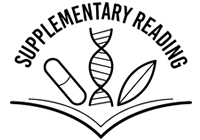Bitter Orange
Also known as: Octopamine, Synephrine
Safety Rating:
|
LIKELY HARMFUL
|
|
NOT ENOUGH INFO
|
|
POSSIBLY UNSAFE
|
|
POSSIBLY SAFE
|
|
LIKELY SAFE
|
For explanations of what these safety ratings mean, click here.
Potential Side effects
Angina (chest pain)
Difficulty concentrating
Heart attack
High blood pressure
Memory loss
Seizure
Skin irritation (when essential oil was applied to skin)
Stroke
Tachycardia (rapid heart beat)
Overview
What is it? Bitter orange contains 2 main stimulant chemicals: Octopamine and Synephrine. These are “adrenergic agents”, meaning they act like Epinephrine (AKA adrenaline) in the body. Some of the effects of adrenergic agents include high blood pressure and faster heart rate.
Why is it used?
- Stimulants are popular ingredients in supplements that claim to “promote weight loss”, “increase energy”, or “increase focus”. Bitter Orange is banned by some sports organizations due to its use as a performance enhancing drug.
- Bitter Orange gained popularity as a supplement ingredient in 2004 when Ephedra, another herbal stimulant, was banned due to harmful side effects that included cardiac arrest, permanent disability, and death. For more information on the Ephedra ban, click here.
What’s the harm?
- Bitter Orange contains multiple stimulant chemicals, and is often found in products with additional stimulent ingredients. Taking multiple stimulants together drastically increases the risk of side effects.
- While Bitter Orange is generally safe when eaten as a food, it is considered POSSIBLY UNSAFE when taken orally in medicinal doses due to documented cases of serious side effects.
Intractions with health conditions
ADHD: May cause or increase side effects from ADHD medications.
Brain Function: May cause difficulty concentrating and memory loss.
Diabetes: May increase the risk of Hypoglycemia (low blood sugar) when combined with medications meant to control blood sugar
Epilepsy/Seizures: may increase risk of seizures.
Heart problems:
- May increase blood pressure
- May increase heart rate
- May interact with heart rhythm control medications, which can cause Arrhythmia.
Insomnia: Could cause insomnia or make it worse.
Kidney Disease: Man raise your blood pressure, which can weaken the blood vessels to the kidneys, damaging them. Damaged kidneys will not be able to properly filter blood, which can lead to rising levels of toxins in the body. For more information on kidney damage, click here.
Drug Interactions
ADHD medications: Combining Bitter Orange with ADHD medications may:
- increase blood pressure
- worsen other medication side effects such as insomnia and loss of appetite
Anxiety medications: May increase anxiety, requiring higher or more frequent doses of anti-anxiety medications
Blood Pressure medications: May raise blood pressure, working against the effects of blood pressure medications.
CYP3A4-metabolized drugs: Bitter orange juice may prevent the metabolism of drugs by the CYP3A4 enzyme in the intestines. This can lead to higher levels of those drugs in the body. For a list of CYP3A4-metabolized drugs, click here.
Diabetes/blood sugar control: Chromium may increase the risk of Hypoglycemia (low blood sugar) when combined with diabetes medications. Examples include:
- Metformin
- Glipizide (Glucotrol)
- Insulin
- Pioglitazone (Actos)
- Liraglutide (Victoza)
- Canagliflozin (Invokana)
- Sitagliptin (Januvia)
For more examples of diabetes medications, click here.
Heart Rate medications: May make the heart beat faster, working against medications that are supposed to lower heart rate. These medications include Beta Blockers, some CCBs like Diltiazem and Verapamil, and Digoxin.
Heart Rhythm medications: May interact with heart rhythm control medications, which can cause arrhythmia. Examples of heart rhythm medications include Amiodarone and Sotalol. For a list of heart rhythm medications, click here
Mental Health medications: Combining Bitter Orange with Monoamine Oxidase Inhibitors (MAOIs) could cause high blood pressure, which might turn into a serious condition called “hypertensive crisis”. For a list of MAOIs, click here.
Sleep medications: Bitter Orange could make insomnia worse, which may mean having to take higher doses of sleep medications in order to fight the insomnia.
Stimulants: Combining the stimulants in Bitter Orange with stimulant medications can increase side effects and risk of heart attack, stroke, or seizure. Stimulant drugs are often used for ADHD and weight loss. For a list of stimulant medications, click here.
Interactions with herbs/supplements
Blood sugar-lowering products: Combining with products that may lower blood sugar increases the risk of hypoglycemia (extremely low blood sugar). Examples:
- Alpha-lipoic acid
- Bitter melon
- Chromium
- Garlic
- Ginseng
- White Mulberry
Panax Ginseng: Taking Bitter Orange with Panax Ginseng may cause prolonged QT intervals, which can lead to arrhythmia (irregular heartbeat).
Stimulants: Combining a stimulant like Bitter Orange with other herbal stimulants could worsen the side effects from both ingredients. Examples include:
For a list of stimulant herbal ingredients, click here.
Interactions with foods
Caffeinated beverages: Combining with caffeine has resulted in high blood pressure and increased heart rate in otherwise healthy adults. Combining with stimulant drugs could increase the side effects from those drugs as well as the side effects from Bitter Orange.
Interactions with lab tests
Urine drug tests: The synephrine in Bitter Orange may cause a false positive for Amphetamine and Methamphetamine on a drug test.
References
- *Natural Medicines. (2019, March 11). Bitter Orange [Monograph]. Natural Standard Professional Monograph. Retrieved from: https://naturalmedicines.therapeuticresearch.com/databases/food,-herbs-supplements/professional.aspx?productid=976
*=Requires PAID or institutional subscription to access
